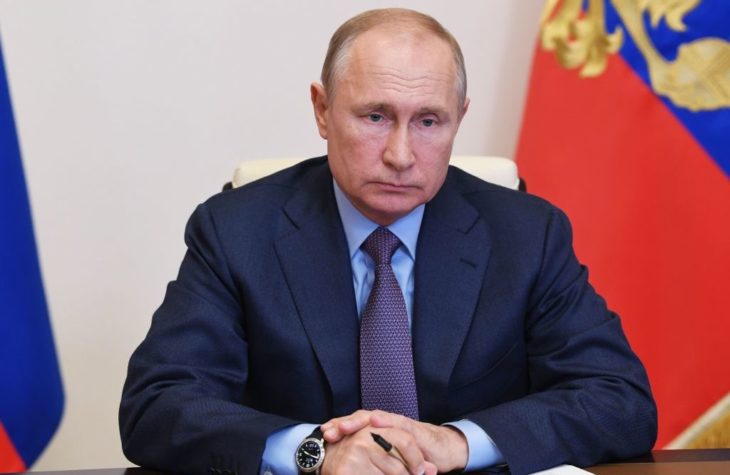Russian is losing influence in a region it once dominated: Eastern Europe. Highlighting this newfound weakness are Ukraine and Belarus, two states that were once solidly in Russia’s sphere of influence and are now on the verge of completely falling away.
In 2018, Ukraine enshrined in its constitution the goal of NATO membership and last year Belarus experienced massive pro-democracy protests; both of these events are in Russia’s eyes akin to westernization. The American foreign policy establishment acts as if Russia will ultimately accept being surrounded by Western-allied states. Instead, history shows that losing influence will cause Russia to lash out. If Ukraine moves toward NATO membership, it will incur a Russian invasion. Russia would respond similarly if Belarus was to democratize.
By pushing for liberalization, the US has risked getting roped into a war with Russia. Therefore, the ideal policy would be to quickly restore balance between the West and Russia by maximizing Ukraine’s independence in a grand bargain, abandoning the post-Crimea “do something!” approach where sanctions were levied in the vain hope of altering Russia’s course.
Firstly, the United States must acknowledge that there can be no place for Ukraine in NATO. While this will bring understandable anguish to Ukrainians, as discussed previously such an action would automatically lead to war with Russia, and since the United States will not fight such a war, it should not trigger one.
America should also swear off regime change in Belarus: Russia is willing to fight there and the US is not. Avoiding a Russian invasion of Belarus is also in NATO’s strategic interest: if Russia’s borders included Belarus, it would nearly reach its exclave Kaliningrad, almost severing the Baltic states from the rest of NATO. These two declarations will be criticized by those who imagine Russia as forever one set of sanctions on cheese away from breaking. But nearly a decade of post-Crimea sanctions should put to rest the notion that America can keep Russia out of Ukraine and Belarus without military force.
In return for these guarantees, the bargain would see Russia remove all troops from Donetsk and Luhansk and cease support for the separatist rebels. This is a necessity, as Ukraine must be able to control its own territory. If Russia refuses to leave these areas, there can be no bargain.
After these initial actions, the United States should keep a close relationship with Ukraine by training the Ukrainian army to ensure that Ukraine is capable of defending itself, sharing intelligence, and selling the country defensive arms if necessary.
This deal would have insurance built in for all sides. Should Russia begin threatening Ukrainian sovereignty, America could sell Ukraine enough offensive weapons to make any occupation by Russian forces prohibitively costly. Likewise, should America become open to the idea of Ukraine joining NATO, Russia could always mass troops.
With this bargain, Ukraine would remain a democracy. It would be, in not joining NATO, in a position akin to Finland — far from a terrible fate. Belarus would remain unfortunately authoritarian but also free of Russian occupation. Russia would not feel cornered. And America would be free of yet another potential war.
These strategies — placating Russia, America extricating itself — will be tarred as appeasement. But real appeasement would be allowing a Russian occupation of Ukraine à la Germany’s dissection of Czechoslovakia in 1938 — or at least Ukraine’s return to Russia’s orbit.
What else is there to be done? War is out of the question for America. Sanctions have not deterred Russia, and the West must acknowledge that nothing else can short of destroying the capability of the Russian state to function, which would create an even more dangerous situation.
To be clear, there are some sanctions that should be levied, namely on the oligarchs Putin needs for support. These have and can force a tangible goal: weakening Putin’s grip on power. But such sanctions would likely do nothing to change Russia’s foreign policy.
A lack of balance has led Eastern Europe to the precipice of war, an idea so frightening that for nearly fifty years the world was focused on preventing it. Yet since the end of the Cold War, the West has forgotten the importance of that international balancing act and is now potentially steps from conflict with Russia. To avoid that fate, we should find our balance once more.
The post Why America needs a grand bargain with Russia appeared first on The Spectator World.
Got something to add? Join the discussion and comment below.
Get 10 issues for just $10
Subscribe to The Spectator Australia today for the next 10 magazine issues, plus full online access, for just $10.



















Comments
Don't miss out
Join the conversation with other Spectator Australia readers. Subscribe to leave a comment.
SUBSCRIBEAlready a subscriber? Log in